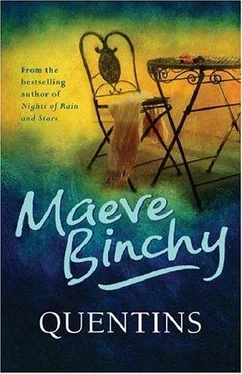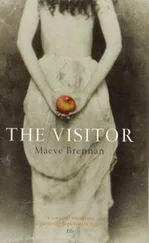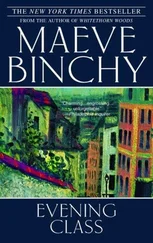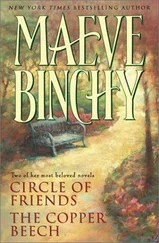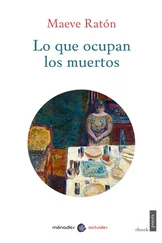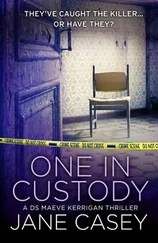Maeve Binchy - Quentins
Здесь есть возможность читать онлайн «Maeve Binchy - Quentins» весь текст электронной книги совершенно бесплатно (целиком полную версию без сокращений). В некоторых случаях можно слушать аудио, скачать через торрент в формате fb2 и присутствует краткое содержание. Жанр: Современная проза, на английском языке. Описание произведения, (предисловие) а так же отзывы посетителей доступны на портале библиотеки ЛибКат.
- Название:Quentins
- Автор:
- Жанр:
- Год:неизвестен
- ISBN:нет данных
- Рейтинг книги:5 / 5. Голосов: 1
-
Избранное:Добавить в избранное
- Отзывы:
-
Ваша оценка:
- 100
- 1
- 2
- 3
- 4
- 5
Quentins: краткое содержание, описание и аннотация
Предлагаем к чтению аннотацию, описание, краткое содержание или предисловие (зависит от того, что написал сам автор книги «Quentins»). Если вы не нашли необходимую информацию о книге — напишите в комментариях, мы постараемся отыскать её.
Quentins — читать онлайн бесплатно полную книгу (весь текст) целиком
Ниже представлен текст книги, разбитый по страницам. Система сохранения места последней прочитанной страницы, позволяет с удобством читать онлайн бесплатно книгу «Quentins», без необходимости каждый раз заново искать на чём Вы остановились. Поставьте закладку, и сможете в любой момент перейти на страницу, на которой закончили чтение.
Интервал:
Закладка:

QUENTINS
by Maeve Binchy
Also by Maeve Binchy
Light a Penny Candle
Echoes London Transports
Dublin 4
The Lilac Bus
Firefly Summer
Silver Wedding
Circle of Friends
The Copper Beech
The Glass Lake
Evening Class
To my dear good Gordon. Thank you for a lifetime of generosity, understanding and love.
Chapter One.
When Ella Brady was six she went to Quentins. It was the first time anyone had called her Madam. A woman in a black dress with a lace collar had led them to the table. She had settled Ella's parents in and then held out a chair for the six-year-old.
"You might like to sit here, Madam, it will give you a full view of everything," she said. Ella was delighted and well able to deal with the situation.
"Thank you, I'd like that," she said graciously. "You see, it's my very first time here." This was in case anyone might mistake her for a regular diner.
Her mother and father probably were looking at her dotingly, as they always did. That's what all the childhood pictures showed, anyway ... complete adoration. She remembered her mother telling her that she was the best girl in the world, and her father saying it was a great pity he had to go off to the office every day, otherwise he would stay at home with the best girl.
Once Ella asked why she didn't have sisters and brothers like everyone else seemed to. Her mother said that God had only sent one to this family, but weren't they lucky that it was such a wonderful one. Years later, Ella learned of the many miscarriages and false hopes. But at the time the explanation satisfied her completely, and it did mean that there was no one she had to share her toys or her parents with and that had to be good. They took her to the zoo and introduced her to the animals, they brought her to the circus whenever it came to town, they even went for a weekend to London and took her picture outside Buckingham Palace. But somehow nothing was ever as important as that first visit to a grown-up restaurant, where she had been called Madam and given a seat with a good view.
The Bradys lived in Tara Road, in a house which they had bought years ago before prices started to rocket. It was a tall house with a big back garden where Ella could invite her friends from school. The house had been divided into apartments when the Bradys bought it. So there was a bathroom and kitchenette on every floor. They had restored most of it to make it a family home but Ella's friends "were very envious that she had what was like a little world of her own. It was a peaceful, orderly life. Her father Tim had a twenty-two-minute walk to the office every day, and twenty-nine minutes back on the return journey, because he paused to have a half-pint of beer and read the evening paper.
Ella's mother, Barbara, only worked mornings. She was the one who opened up the solicitors" offices right in town near Merrion Square. They trusted her utterly, she always said proudly, to have everything ready when the partners arrived in at 9.30 a.m. All their mail would be on their desks sorted for them. Someone to answer early-morning phone calls and to imply that they were already at work. Then she would go through the huge collection in what was called Barbara's Basket, where they all left anything at all to do with money. Barbara thought of herself as a super-efficient bookkeeper, and she controlled the four disorganised, crusty lawyers she worked for with iron rules. Where was this receipt for transport undertaken in the course of a case? Where was that invoice for the new stationery that someone had ordered? Obediently, like small boys, they delivered their accounts to her and she kept them in great ledgers. Barbara dreaded the day when they would all become computerised. But it was still far away. These four would move very slowly. They would have liked the quill pen to work with had they been given a choice!
Barbara Brady left the office at lunchtime. At first she needed to do this in order to pick Ella up from school, but even when her daughter was old enough to return accompanied only by a crowd of laughing girls, Barbara continued the routine of working a half day only. Barbara knew that she achieved more in her four-and-a half-hour stint than most others did in a full day. And she knew that her employers realised this too. So she was always in the house when Ella returned. It all worked out very well. Ella had somebody at home to provide a glass of milk and shortbread and to listen to her colourful account of the events of the day, this drama and that adventure. Also, to help her with what homework needed to be done.
This system meant that Tim Brady had an orderly house and a good cooked meal to return to when he got back from the investment brokers where he worked with ever-increasing anxiety over the years. And when he came home every evening at the same time, Ella had a second audience for her marvellous people-filled stories. And the lines of care would fall gradually from his face as she followed her father around the garden, first as a toddler then as a leggy schoolgirl. She would ask questions about the office that her own mother would never dare to ask. Did they think well of Daddy at the office? Was he ever going to be in charge? And later, when it was clear to Ella how unhappy her father was, she asked him why he didn't go somewhere else to work.
Tim Brady might have left the office where he was so uneasy, and gone to another position, but the Bradys were not people to whom change came easily. They had taken a long time to commit to marriage, and an even longer time to produce Ella. They were nearly forty when she arrived, a different generation from the other parents of young children. But that only deepened their love for her. And their determination that she should have everything that life could possibly give her. They did their basement up as a self-contained flat, and let it to three bank girls in order to make a fund for Ella's education. They never did anything just for themselves. In the beginning a few heads were shaken about it all. Was there a possibility that they did too much for the child? some people wondered. That they would spoil her totally? But as it happened even those who had forebodings had to agree that all this love and attention did Ella no harm at all.
From the start she seemed able to laugh at herself. And everyone else. She grew into a tall, confident girl who was open and friendly and who seemed to love her parents as much as they loved her.
Ella kept a photograph album of all the happy events of childhood, and wrote captions under the pictures: "Daddy and Mam and the Chimp at the zoo. Chimp is on left", and would peal with laughter at it every time.
Even at the age of thirteen when other children might have wriggled away from scenes of family life, Ella's blonde head pored over the pictures.
"Was that the blue dress I wore to Quentins?" she asked.
"Imagine you remembering that!" Her father was delighted.
"Is it still there?" she asked.
"Very much so, it's got smarter, more expensive, but it's certainly still there and doing well."
"Oh." She seemed disappointed to hear it had become expensive. Her parents looked at each other.
"It's a long time since she's been there, Tim."
"Over half her lifetime," he agreed, and they decided to go to Quentins on Saturday night.
Ella looked at everything with her sharp young eyes. The place looked a lot more luxurious now than the last time. The thick linen napkins had an embroidered Q on them. The waiters and waitresses wore smart black trousers and white shirts, they knew all about every dish and explained clearly how they were cooked.
Читать дальшеИнтервал:
Закладка:
Похожие книги на «Quentins»
Представляем Вашему вниманию похожие книги на «Quentins» списком для выбора. Мы отобрали схожую по названию и смыслу литературу в надежде предоставить читателям больше вариантов отыскать новые, интересные, ещё непрочитанные произведения.
Обсуждение, отзывы о книге «Quentins» и просто собственные мнения читателей. Оставьте ваши комментарии, напишите, что Вы думаете о произведении, его смысле или главных героях. Укажите что конкретно понравилось, а что нет, и почему Вы так считаете.
